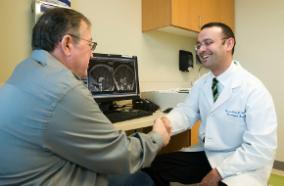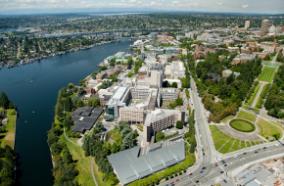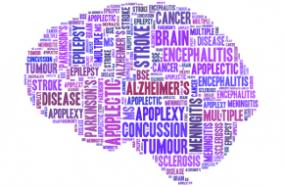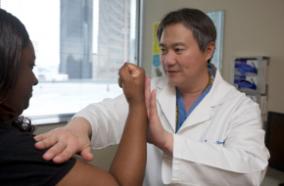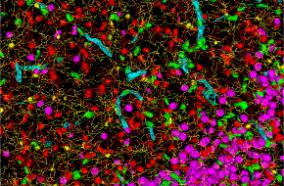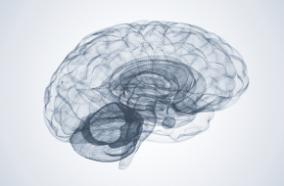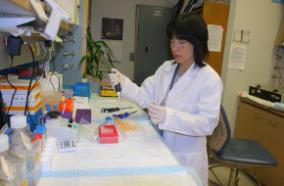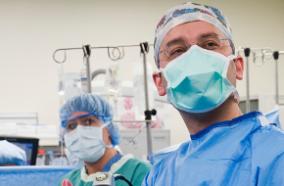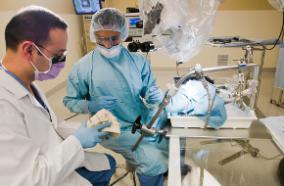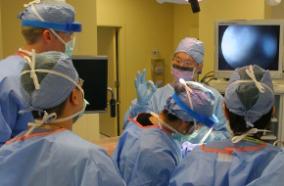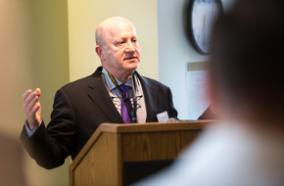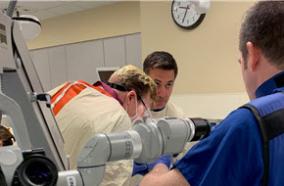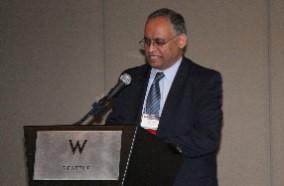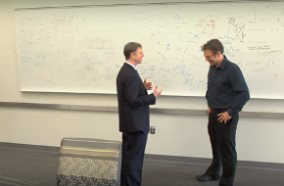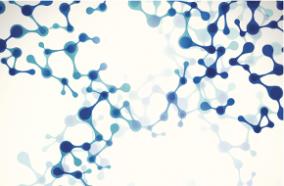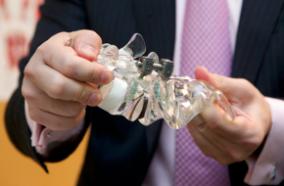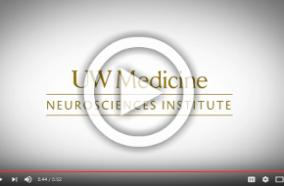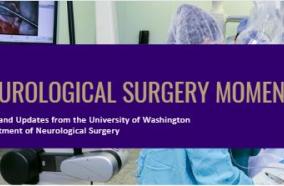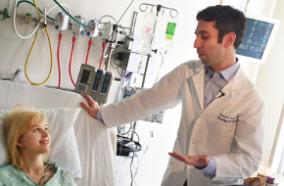Neurological Surgery Grand Rounds
Weekly Grand Rounds include a series of active ties into laboratories, the Friday Faculty Lecture Series, and clinical observations. Grand Rounds include case studies by residents, Mortality and Morbidity conferences, and presentations of research and clinical innovations reports from faculty and guest lecturers. Attendance at these weekly all-department meetings gives students a clear view of the dynamic interactions that are part of contemporary medicine as practiced in the UW Department of Neurological Surgery, the UW Medicine Neurosciences Institute, and elsewhere nationally or internationally.
In addition to improving their basic or clinical neuroscience knowledge base, students have the opportunity to observe clinician and research scientist interactions in real-time scientific exploration and problem-solving across disciplines; modeling of learning interactions for undergraduates, residents, fellows and faculty; and methods of presentation and discussion that form the basis for both student and future career presentations. Students have the opportunity to ask questions during these sessions and speak with presenters afterward to further their understanding.
The following are examples of Grand Round presentations alumni have attended:
- Dedra S. Buchwald, MD
“Changing the Status Quo: Working with Native Populations in Washington and Beyond” - Pierre D. Mourad, PhD
“Ultrasound-based detection of midline shift after TBI” - Jeffrey G. Ojemann, MD
“Human electrophysiology studies and applications” - Samuel Emerson, MD, PhD
“Cerebral Organoids as Patient Avatars for Malignant Brain Tumors” - Laligam N. Sekhar, MD, FACS, FAANS
“Increasing Intracranial Venous Outflow: To reduce ICP, and Improve Glymphatic Flow” - Nicholas Theodore, MD, FACS, FAANS
“Engineering the Future of Spinal Surgery - Kai J. Miller, MD, PhD
“Stereoelectroencephalography as a tool for novel brain mapping - and brain circuitry research”
- Pierre D. Mourad, PhD
“Pediatric Treatment-Resistant Depression via neuromodulation: a potential ARPA-H program” - Simon S. Lo, MB, ChB, FACR, FASTRO
“The Role of Radiotherapy in Primary Spinal Tumor” - Jamshid Ghajar MD, PhD, FACS
“What Is Next In Traumatic Brain Injury?” - Christoph P. Hofstetter, MD, PhD, FAANS
“Ars Videndi”” - Anubhav Gautam Amin, MD, BS
“Updates on Management of Spinal Metastases” - Richard Louis Rapport, II, M.D
“Cajal's discovery of the anatomical synapse” - Jeffrey G. Ojemann, MD and Jeffrey Herron, PhD
“Engineering Neuroplasticity – a 50y bench to bedside story”
Visit the department YouTube Channel for videos of previous Grand Rounds.
Residents’ Education Hour (REH)
REH meets weekly immediately following Grand Rounds. These didactic sessions teach residents and students neuroanatomy and neurophysiology and connect to subjects presented in Grand Rounds. Students have the option to attend these conferences and experience the continuum of education between a formal lecture and open discussion in a tutorial setting. Subjects can include: ventriculostomy/ICP monitor placement, lumbar puncture and drains, acute management of traumatic brain injury, and OR basics of subdural burr holes/decompressive craniectomy.

